
In the impoverished Gaza Strip, where most people struggle to make ends meet amid a crippling blockade, the suffering of stray dogs and cats often goes unnoticed.
Said el-Er, who founded the territory’s only animal rescue organisation in 2006, has been trying to change that. He and other volunteers rescue dogs and cats that have been struck by cars or abused and nurse them back to health – but there are too many.
So in recent weeks they have launched Gaza’s first spay-and-neuter programme. It goes against taboos in the conservative Palestinian territory, where feral dogs and cats are widely seen as pests and many view spaying and neutering as forbidden by Islam.
“Because the society is Muslim, they talk about halal (allowed) and haram (forbidden),” Mr El-Er said. “We know what halal is and what haram is, and it’s haram (for the animals) to be widespread in the streets where they can be run over, shot or poisoned.”
Islam teaches kindness towards animals, but Muslim scholars are divided on whether spaying and neutering causes harm. Across the Arab world, dogs are widely shunned as unclean and potentially dangerous, and cats do not fare much better.
Mr El-Er and other advocates for the humane treatment of animals face an added challenge in Gaza, which has been under an Israeli and Egyptian blockade since the Islamic militant group Hamas seized power in 2007. Gaza’s two million residents suffer from nearly 50 per cent unemployment, frequent power outages and heavy travel restrictions.
With many struggling to meet basic needs, animal care is seen as a waste of precious resources or a luxury at best. Mr El-Er’s group, Sulala for Animal Care, relies on private donations, which can be hard to come by.
Mr El-Er says his team can no longer keep up with the number of injured animals that they find or that are brought to the clinic. “The large number of daily injuries is beyond our capacity,” he said. “That’s why we resorted to neutering.”
On a recent day, volunteers neutered a street dog and two cats that had been brought in. There are few veterinary clinics and no animal hospitals in Gaza, so they performed the operations in a section of a pet store that had been cleaned and disinfected.
“We have shortages in capabilities, tools, especially those needed for orthopaedic surgeries,” said Bashar Shehada, a local veterinarian. “There is no suitable place for operations.”
Mr El-Er has spent years trying to organise a spay and neutering campaign but met with resistance from local authorities and vets, who said it was forbidden. He eventually secured a fatwa, or religious ruling, stating that it is more humane to spay and neuter animals than to consign an ever-growing population to misery and abuse.
Once the fatwa was issued, Mr El-Er said local authorities did not object to the campaign as a way of promoting public health and safety. The Hamas-run health and agriculture ministries allowed veterinarians to carry out operations and purchase supplies and medicine, he said.
The Gaza City municipality provided land for a shelter earlier this year. Before that, Mr El-Er kept the rescued animals at his home and on two small tracts of land that he leased.
The new shelter currently houses around 200 dogs, many of them blind, bearing scars from abuse or missing limbs from being hit by cars. At least one was adjusting to walking with a prosthetic limb. A separate section holds cats in similar shape.
The group tries to find homes for the animals, but here too it faces both economic and cultural challenges. Very few Gazans would keep a dog as a pet, and there’s little demand for cats. Some people adopt the animals from abroad, sending money for their food and care.
Over the past decade, international animal welfare groups have carried out numerous missions to evacuate anguished animals from makeshift zoos in Gaza and relocate them to sanctuaries in the West Bank, Jordan and Africa.
But there are no similar campaigns for dogs and cats, and Gaza has been sealed off from all but returning residents since March to prevent a coronavirus outbreak.
Mr El-Er’s phone rang recently and the caller said a dog had been hit by a car. Volunteers from Sulala brought it back to the shelter on the back of a three-wheeled motorbike and began treating it. Mr El-Er says they receive around five such calls every day.
15 Things Moms Do That Make Them Even More Incredible
Each pregnancy alters your body irrevocably. And we don’t mean the stretch marks or the scars. We mean the forever-changed DNA. Ask any new mother and she’ll list out a litany of things that are now different for her. Like a forgetful mommy brain that, according to science, makes the mother-child bond stronger.
We at Bright Side salute all moms and believe that they are real-life superheroes. To honor all mothers, we found some mommy facts proving there’s nothing like a mother’s love. Or the science behind it.
1. Motherhood changes you, and your DNA.
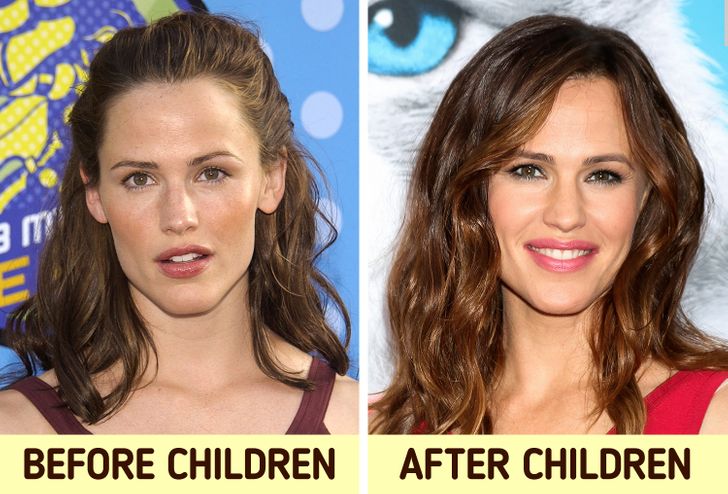
A chimera is a legendary beast made of different animals. And we are likening mothers to chimeras because every child that a mother carries leaves their DNA inside her. Basically, fetal cells enter a mother’s bloodstream and stay in her body forever. Researchers allege that these cells can affect the mother both positively and negatively. On one hand, it can speed up healing but on the flip side, it can increase the risk of cancer.
So when they say motherhood changes you, it does so at an elemental level as well. Jennifer Garner’s stunning countenance reflects just that.
2. The baby can taste what their mother eats.

Studies show that what a mother eats flavors the amniotic fluid. Something a baby gulps down several times a day. Basically, a baby can taste what their mother eats from within the womb.
A study showed that infants whose mothers ate carrots while pregnant seemed to enjoy cereal prepared with carrot juice more than others. So if you want to develop your baby’s palate for healthy, crunchy veggies, chow down on them while you are pregnant.
3. Kissing babies is more “healing” than we think.

Any new mom will tell you that the urge to kiss a newborn is intense. It’s innate and biological in nature. And science says that when mothers kiss their babies, it’s not just love, it’s medicine.
A mother’s body samples the pathogens found on the baby’s face, and more magic happens within her own body. Especially to her breastmilk, the main source of nutrition and immunity for the baby.
4. Pregnant women make enormous amounts of estrogen.

Pregnancy sends a woman’s body into overdrive. The uterus expands to 500 times its normal size and then shrinks back after birth. The blood volume increases and to tackle that, the heart expands a little too.
And it’s not just this, a woman makes more estrogen in a single pregnancy than she would in her whole lifetime if she never got pregnant. There’s a reason why women are exhausted when expecting and need sleep and rest for a healthy delivery and recovery.
5. A mother’s smile is near magical.

Moms are near magic, and so is their smile or affection. While you need your mother at all ages, it’s the helpless infant who is most dependent on their mom.
Studies show that when mothers smile, coo, and show affection to their babies, their heartbeats synchronize into the same beat. So if a baby is distressed, it calms them down. This is the reason why newborns need mothers the most when they are fussy and refuse to be calmed down by other family members.
6. Carrying boys can make you more nauseous.
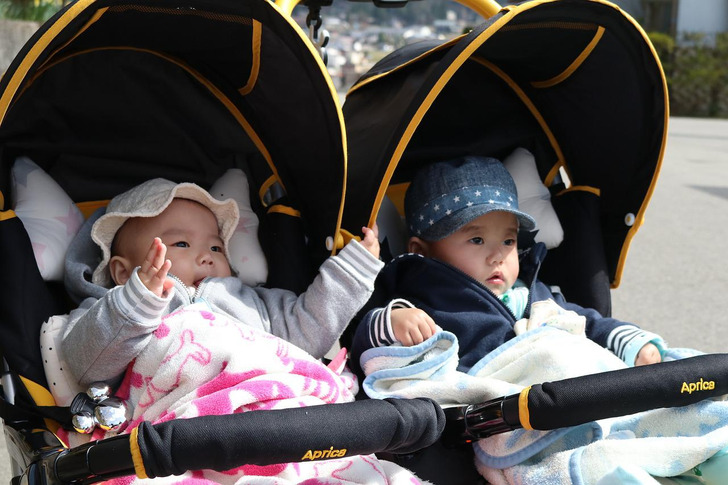
There’s a reason why little boys are made of “snips and snails and puppy dog tails” or so goes the nursery rhyme. This is because mothers who carry boys are more likely to be nauseous in the first and second trimesters, a study shows.
This is not to say that women expecting girls cannot have morning sickness or that all women who carry boys have more nausea. It’s just that if you are expecting a boy, chances are you may experience more nausea or food aversions.
7. Babies name their mamas.
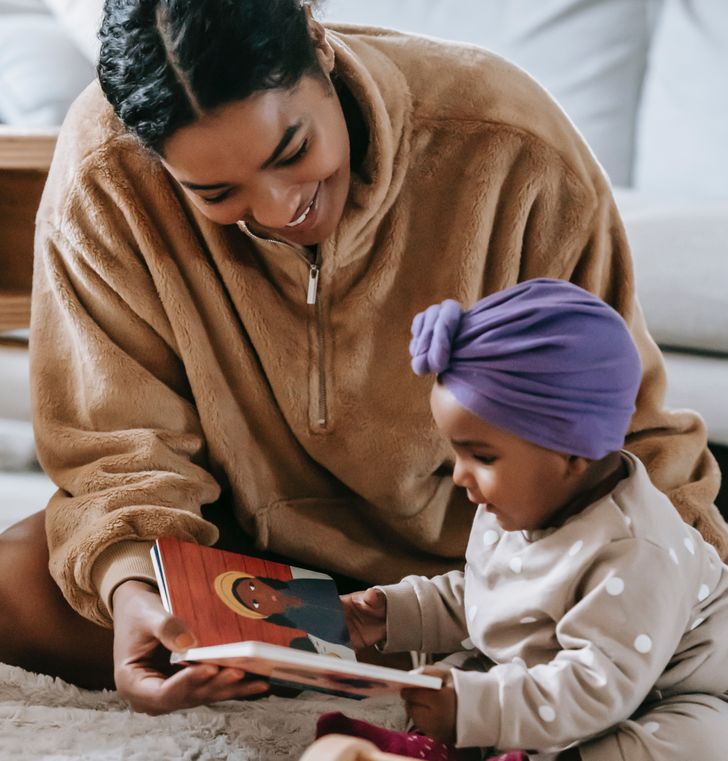
“Mom, mama, mummy, mamma, ammi, ma, me, emi, mimi.” There’s a pattern in the name for mother in all languages and this is because the “em” sounds are usually the first vocalization for a baby. It’s also the easiest sound a baby can make while babbling. And so it’s our babies who name us and call us mamas.
8. The mommy brain fog is very real.

If you see new moms looking lost, there’s a scientific reason for this. Each pregnancy affects a woman’s brain and makes her lose gray matter. The effects last for around 2 years. Science says that this temporary bewilderment makes mothers closer to their babies as well.
That said, the gray matter regenerates and any confusion or forgetfulness is passing. The bond between a mother and her child is permanent.
9. A mother’s voice is as soothing as a hug.
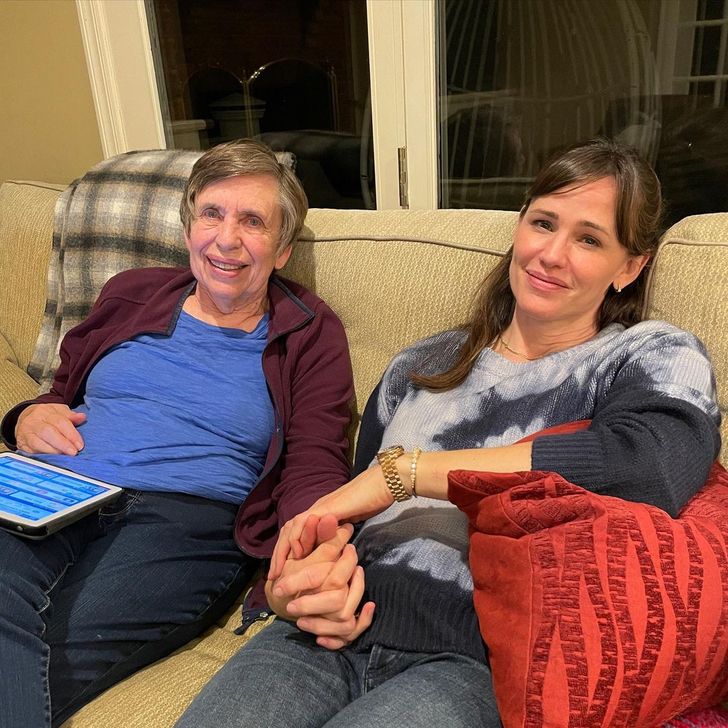
A study has shown that a mother’s voice, even on the telephone, is as calming as a hug. Researchers introduced stress to a group of girls and then had 1/3 of them hug their mothers, another 1/3 of them talk to their mothers, and 1/3 watched an emotionally neutral film. The girls who spoke to their mothers calmed down much faster, just like those who hugged.
This proves that if you are under stress, your mother’s voice can flood oxytocin into your bloodstream, making you feel better. And we think Jennifer Garner already knows that, pictured here with her mother.
10. Babies can cry in the womb.
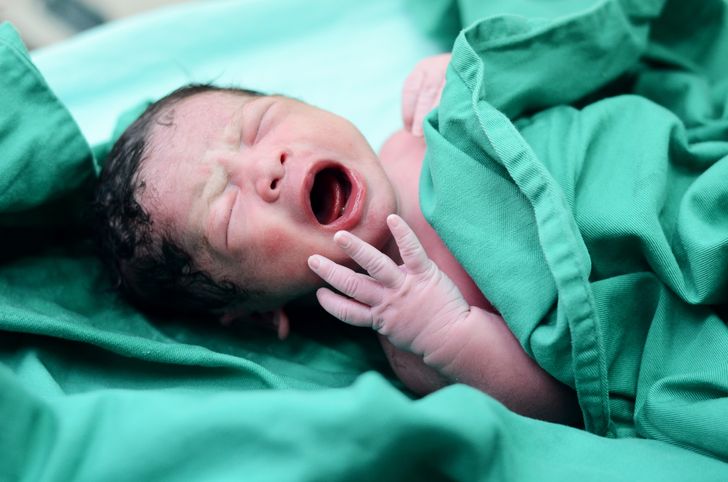
The baby’s first cry is not post-birth, rather studies now show that they can express displeasure inside the womb. This can happen as early as 28 weeks gestation.
Researchers played low-decibel sounds on the mother’s belly and could see that the baby opened their mouth and exhibited crying-like behavior. But it’s a silent cry. Researchers also added that this in-vitro crying was nothing the mother should worry about.
11. Pregnancies leave women vulnerable to tooth decay.
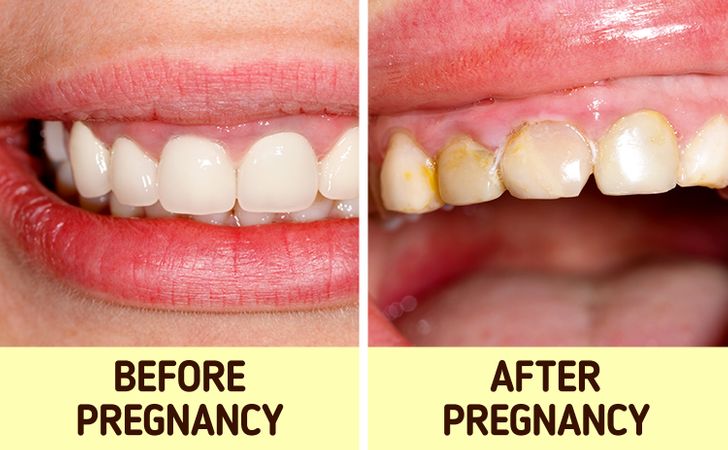
Pregnant women are at risk for tooth decay and there are many reasons why. The changes in diet due to cravings may give some women a sweet tooth and the hormones that cause nausea, meaning more acidity on your mouth, to mention a few. This leads to gum disease and decay.
A simple way to prevent it all is by making oral health a priority, especially when you are pregnant.
12. The earliest milk bottle use came to be 7,000 years ago.
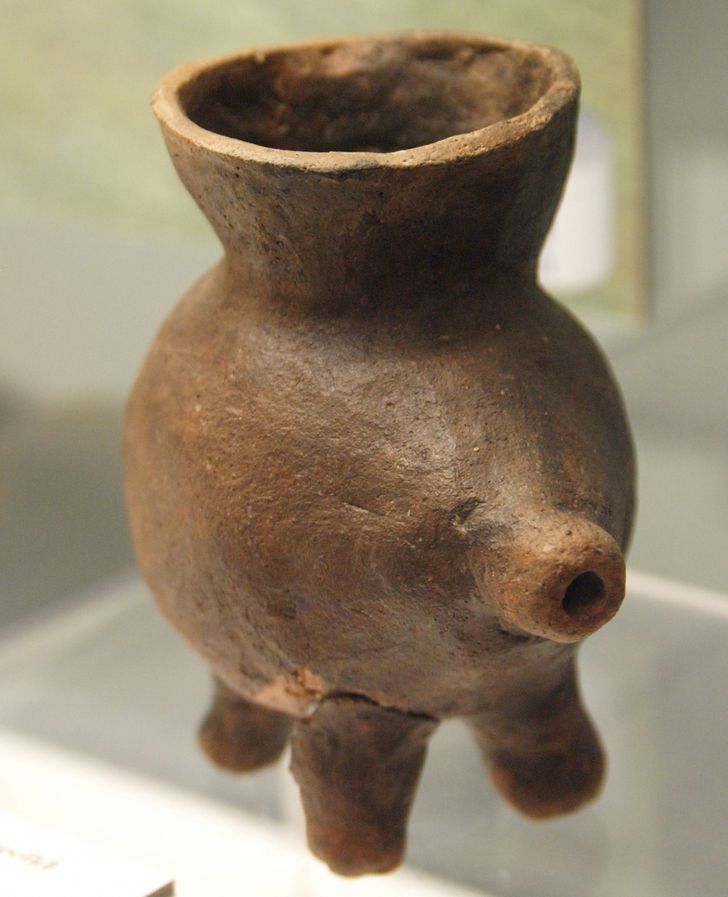
As it turns out, the breast/bottle debate is prehistoric. And mamas back then were pretty innovative too. Researchers have found little clay vessels, some shaped into mythical animals with hands and feet, with milk residue in them.
The earliest of them date back to 7,000 years ago and have been identified as prehistoric feeding bottles for babies. The dairy residue has been identified as breastmilk and milk from a cow, sheep, or goat.
13. The Ice Age made human breast milk more nutritious.
Human beings need sunlight to survive because our bodies only synthesize vitamin D in the sun. Allegedly, the last Ice Age should have wiped us out because newborns were not getting any vitamin D, considering the intense cold and lack of sunshine.
Scientists believe that a genetic tweak happened and mothers could transmit vitamin D and essential fatty acids to their newborn babies, and this may have ensured human survival.
14. Pregnancies can be contagious.
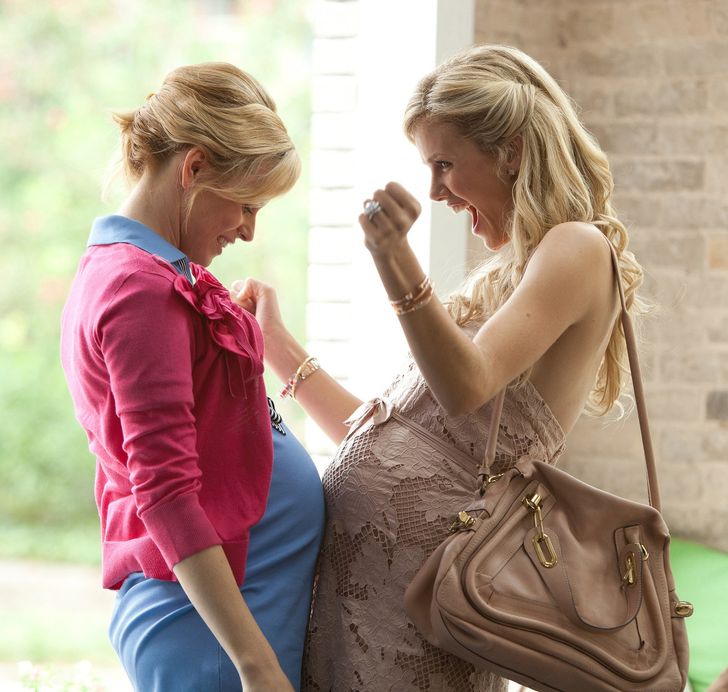
A study of more than 30,000 women conducted in Germany has indicated that pregnancy is contagious. It spreads from woman to woman in workplaces, in an endearing way. The results stated that “in the year after a colleague gives birth, transition rates to first pregnancies double.”
So if you are in the workplace and someone is pregnant, expect more pregnancies to pop up.
15. Most mammal moms carry their babies on the left.
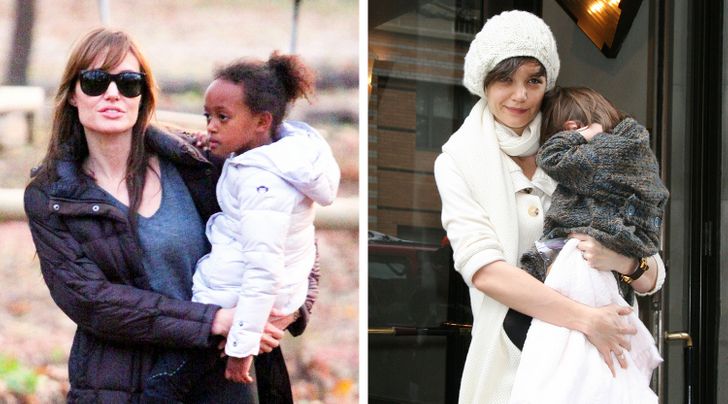
Human mothers and even some mammal mamas cradle their babies on the left side of their bodies, closer to their heart. This is irrespective of a left-handed or right-handed mom. Science says that all the sensory information that comes from the left side of the body is processed on the right side of the brain.
The right side is where all the emotions are. And surprisingly enough, babies prefer to keep their moms on their left side as well, so it works for both mom and babe.
Bonus: Celebrity moms speak about motherhood.
Rosie Huntington-Whiteley

“I did start to feel this new sense of life. And now my confidence is so much greater.”
Lauren Burnham Luyendyk
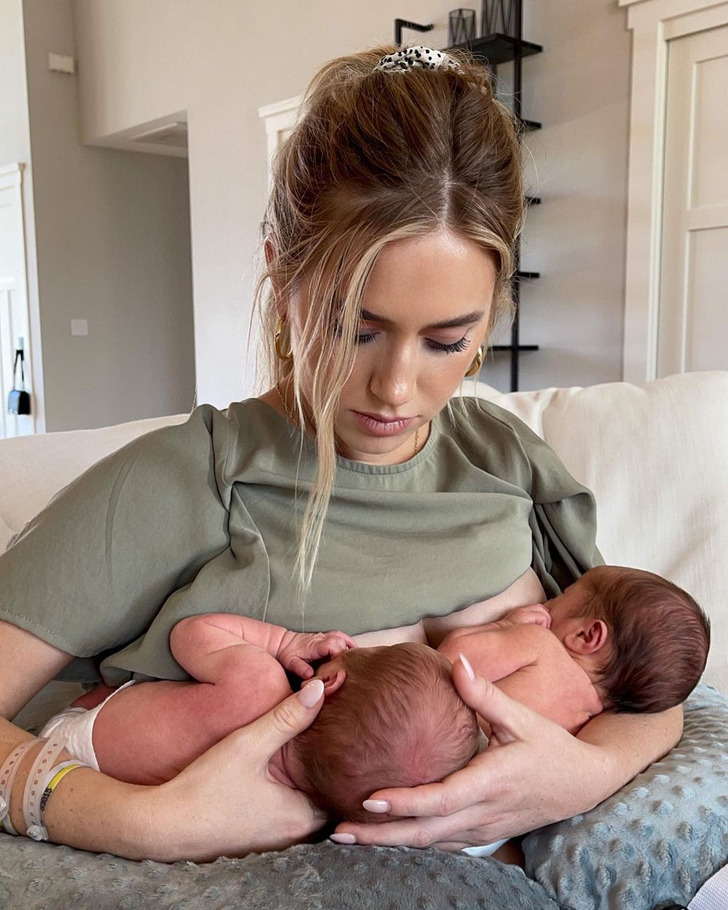
“Breastfeeding is one of the hardest things I’ve ever done. I’m in awe of the ladies that make it look so effortless, and even the ones who don’t, you are superheroes.”
Do you have any other experiences as a child or a mother that show us that moms are actual superhumans? Share your motherhood stories with us and spread the joy.
Please note: This article was updated in June 2022 to correct source material and factual inaccuracies.
Preview photo credit laurenluyendyk / Instagram
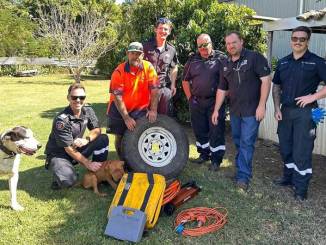
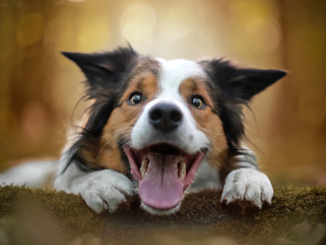
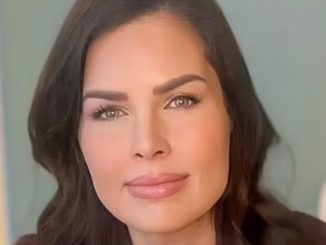
Leave a Reply